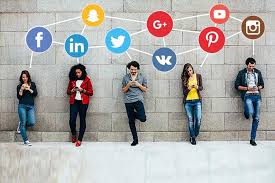There are many people who are positive about the role of social media in society. The young and millennial generation are very optimistic about its role. Generation Z is also reliant on social media. They are the ones who post and share the most. In fact, many people say that social media has become their source of entertainment and information. But is social media really good for our society? This article explores some of the issues surrounding social media and the role it plays in society.
Impacts of social media on society
Social media has a mixed record of impacts on society. More than half of American adults believe it has had a negative impact. Seventy-eight percent of Republicans say the same. A small minority, however, believe it has had a positive impact. Even those who don’t believe in its negative impact say it is a bad thing for society. The survey also found that half of all Americans disagree. However, there are some common misconceptions about social media that people should consider.
Among the common misconceptions about social media is that it promotes mental illness. In fact, research has shown that social media use is associated with an increased risk of depression and anxiety among people who use it extensively. The reasons for this link range from cyberbullying to having a distorted view of other people’s lives. Some studies have even found a connection between heavy use of social media and suicidal thoughts.
Millennials’ optimism about social media’s role in society
Millennials are characterized as a collaborative, optimistic, and digital pioneer generation, and they’re not shy about sharing their personal lives on social media. They use Facebook, Instagram, and other social media platforms on a daily basis. They’re also heavily influenced by social media and user-generated content, and 72% of them say they bought a fashion product based on a post they saw on Instagram.
While older generations may have been more skeptical about the role of social media in society, Millennials are more optimistic about its impact. Seventy-three percent of Millennials who use the internet regularly say it has been good for society in general. This is significantly higher than the 63% of the Silent Generation who said the same thing. It’s no wonder that Millennials are more optimistic about social media’s role in society.
Generation Z’s reliance on social media
This study attempts to answer this question by investigating the role of social media in Generation Z’s social life. The study is not a comprehensive survey; it is rather a theoretical framework that harvests a set of investigation questions and designs a pathway to considering Gen Z’s social network. As such, the study identifies many questions that are not addressed by other studies. Furthermore, it sketches practical insights for decision makers.
The pervasiveness of social media in Generation Z’s lives is one of the factors contributing to their sense of loneliness. Although Gen Z uses social media infrequently, they do not log off of it entirely. They also do not distinguish between friends in real life and online communities. They see these online communities as a space that allows them to connect and mobilize irrespective of their economic status. In fact, McKinsey research has found that Gen Z’s online community participation is higher than that of the previous generations.
Misinformation spread through social media
A study of the dissemination of misinformation on social networks revealed that participants struggled to sort out the fact from the false information. They said that they were unable to trust the information they received through social media and that they did not feel confident about it. This misinformation affected their emotions and their attitudes towards others. They found that participants acted on the misinformation in four different ways. The authors offer several practical tips to combat the spread of misinformation on social networks.
Although the examples of misinformation in social media come from the US, the phenomenon occurs throughout the world. The spread of conspiracy theories is a common phenomenon. There have been reports linking a 5G network to the Coronavirus, which was spread by hashtags on Twitter. It is important to remember that the sources that distribute these stories and misinformation are often biased or manipulated. In addition, researchers and journalists will often look for information that has been verified by other sites and is based on extensive research.
Its potential for combating online crime
The potential of social media to fight online crime is an area of ongoing research. Social media contains information about crimes that can be used along with other information sources. Many articles have been published about the use of social media for criminal detection and prevention. These articles are organized into several domains. These include civil unrest, DDOS attacks, hit and run, and general crime. This article will review some of the major social media platforms and their potential use in crime prevention and detection.
A recent survey of 1,221 law enforcement officials found that four out of five law enforcement officials use social media during an investigation, and half check it at least once a week. In addition, most law enforcement officials believe that using social media can help them solve crimes more quickly. The results of the survey showed that Facebook and YouTube are two of the most fruitful social media sites for investigators. Further, 80 percent of these police agencies believe that using social media to combat online crime has helped solve crimes.

